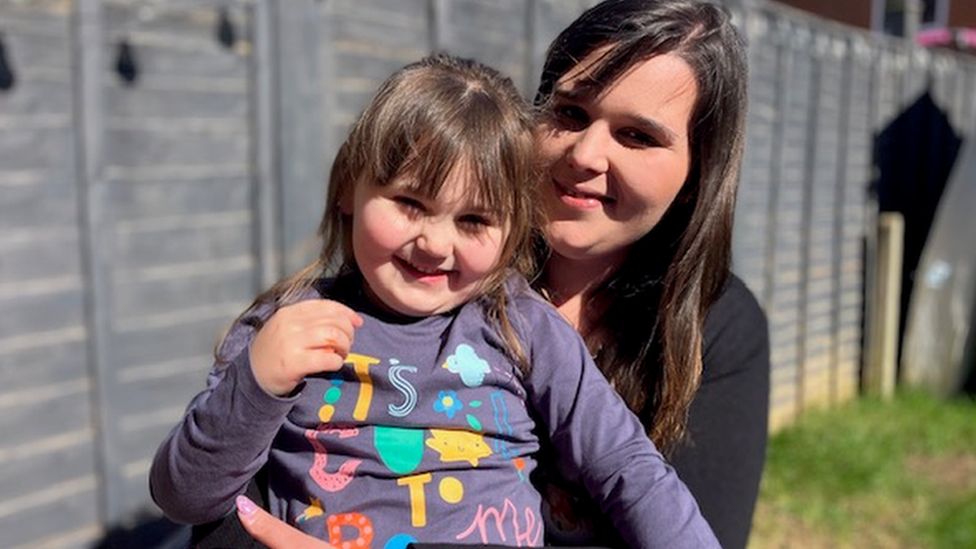-
Published1 hour ago
A baby as young as eight months old has been seen by a new weight management service for severely obese children.
A growing number of pre-school children are severely overweight in Somerset.
The NHS service, called Splash, is one of only a few in the country offering under fours and their families access to dietary and compassionate psychological support.
One doctor involved said while eight months was atypically young, the earlier patients were seen the better.
‘Milk for comfort’
Clinical director of paediatrics Dr Chris Knight said: “[Eight months] is unusual, but at that kind of age we can really make progress about how they are feeding those children at such an early stage. There’s a really good opportunity there to turn thing around.”
He continued: “The majority of our cases are between the ages of two and four, but about 15% are under two.
“At the very young age of eight months old, that often relates to issues where young babies are taking really large quantities of milk. That can be a difficult cycle to break, they’re relying on milk for comfort, but having a really high intake does mean they gain a lot of weight.”
He said in other cases, causes of childhood obesity were often a combination of food and lifestyle.
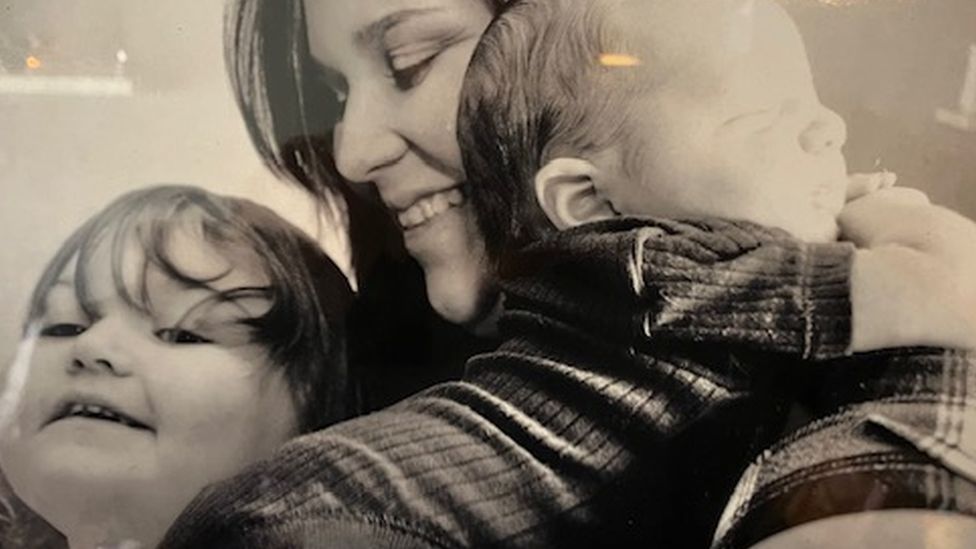
Peter Fleming, professor of infant health and developmental physiology at the University of Bristol, said: “It’s not unheard of for babies as young as six months to be severely obese because their parents often start giving them solids too soon.”
‘Struggled with my weight’
The Royal College of General Practitioners and the Royal College of Paediatrics and Child Health has been contacted for comment.
The Somerset Pre-school Lifestyle Activity Skills for Self-Help (SPLASH) is a weight management service where doctors, dietitians and psychologists monitor food behaviours and seek to build parental confidence.
One patient it has been working with is Lainee, who is now a healthy four-year-old. But when she was two, she was living with severe obesity.
Her mother Claire said: “I had always worried about her weight mainly because I had struggled with my own. So I went to the doctor.
“I just wanted to get a bit of advice, see if I could get a bit of support or just something to guide me along the way, and they mentioned a new programme called Splash and the next thing I knew, I was in it.”
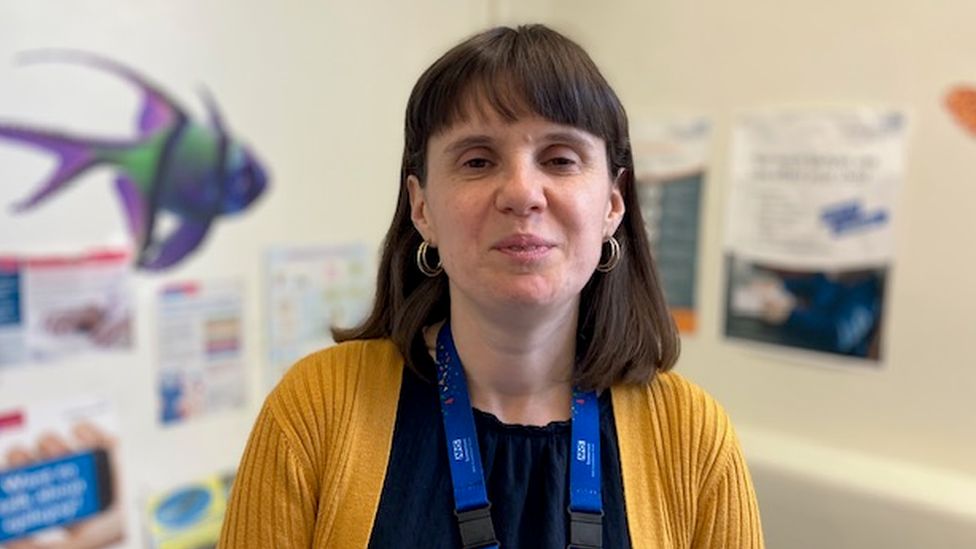
Splash first started as a trial in April 2022, but has proved so successful it has now been given permanent funding.
It is led by psychologists and dieticians like Isobel Feakins, who carry out home visits.
‘Blamed or shamed’
She said: “Coming to meet a family at home, really getting an understanding once they are in their environment. We can have conversations with Mum around what they are having for tea tonight, what snacks or different foods there are in the cupboard and things like that. We can really talk about those things and give practical tips for the family.”
“Also, seeing Lainee with Mum, and those interactions, and how she manages Lainee’s demands around food and requests,” really helped, she added.
More than 50 families have been working with the service since it started and two in five of those have also had the support of the team’s psychologist, Dr Megan Rowley.
“Quite often our parents have had stigmatising experiences where they’ve felt blamed or shamed about their child’s weight, and this can be incredibly challenging and quite unpleasant,” Dr Rowley said.
“Part of my role is to listen and validate some of these experiences of what it’s like to parent a child that lives with severe obesity.”
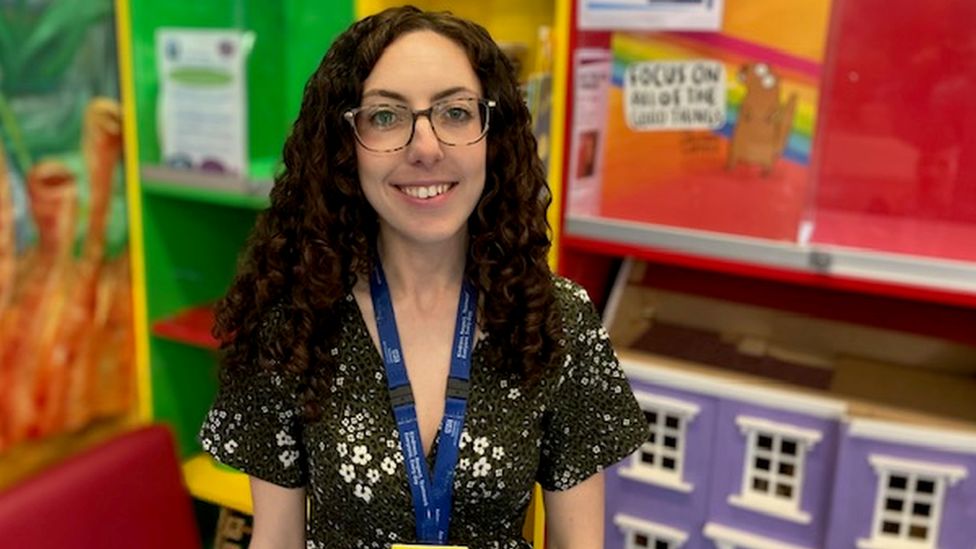
“There are different things that can contribute to obesity, ranging from individual factors, parental factors, but also broader social economic and cultural factors.
“So we need to take all of that into account. We work really hard to move away from this narrative that the parents are to blame,” Dr Rowley said.
‘Will she fit?’
Any health care professionals can refer children to the Splash service.
Lainee’s mother Claire said working with Splash had had a dramatic effect on her daughter’s appearance and enabled to her increase her daily activity levels too.
“She would struggle to climb up the slide, but since losing the weight she’s able to freely do things like that,” she said.
“I would sit there and think ‘is she going to fit in the swing or is she going to get on the slide?’ because I was always worried about how big she was. Now I don’t have that worry at all.”

Follow BBC Somerset on Facebook and, X. Send your story ideas to us on email or via WhatsApp on 0800 313 4630.
-
-
Published1 day ago
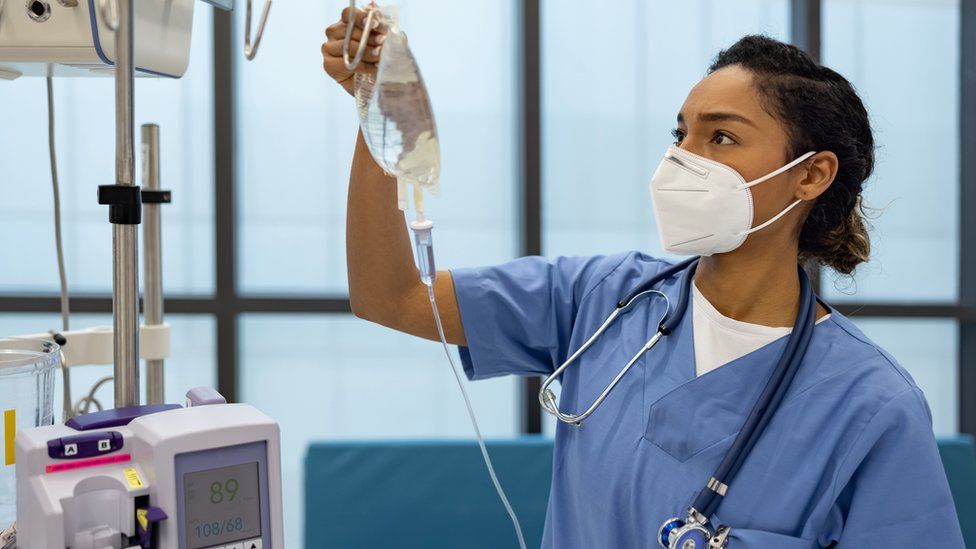
-
-
-
Published19 March
-
